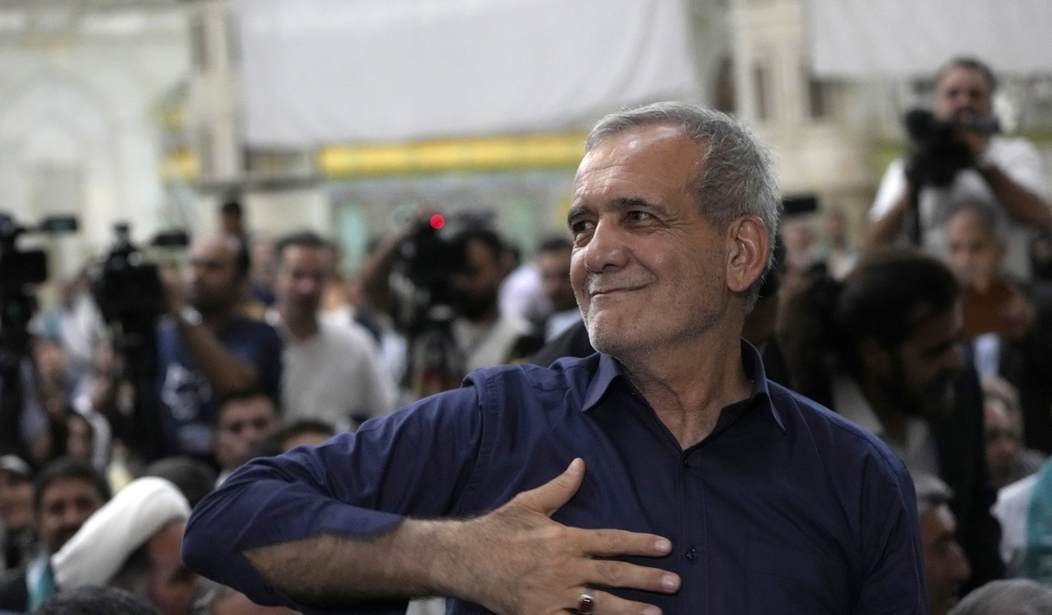Whatever legitimacy the Iranian theocrats ever had was lost in the brutal crackdown following the outburst of freedom after the Shah fell. There was some hope following the Shah's abdication in early 1979 that Iran would become more democratic, more open.
The theocrats had yet to establish a significant presence in most of Iranian society, and there was spirited debate among several factions over Iran's future. That debate was short-lived. The mobs in the street attacked and occupied the U.S. embassy, and civic society in Iran died.
Hundreds of regime opponents were executed, including teenage girls protesting the forced wearing of the hijab. From then on, the Iranian government kept control of the people with terror and guns.
While regime opponents watch and wait, they dare not take action while their country is under direct attack by "The Great Satan" and Israel. Iran's immense social, economic, and cultural problems are not going away, however, and the momentary unification of the country is only a temporary respite for the rulers of the regime.
Meanwhile, the regime is eating itself.
On Wednesday, the IRGC said several Israeli “agents and mercenaries” were arrested in central Iran. It urged residents to “be vigilant regarding the movements of neighbors who have recently settled in the area.”
An Israeli military official said these reports were fake and part of misinformation the Iranians are spreading “in efforts to create the appearance of success.” The Israeli prime minister’s office didn’t immediately respond to requests for comment.
“The political, military, security establishment is trying to regain control of that narrative and that social contract to say we can protect you,” said Geranmayeh. “It’s a real challenge to repair. That social contract is now the biggest challenge for them internally.”
Since 1979, there have been 18 uprisings against the regime. All of them, to one degree or another, were supported by the U.S and most Western nations. However, the lip service given to the Iranian democrats was pro-forma and lacked any real commitment to help them.
The worst example was the 2009 "Green Movement," where millions of Iranians marched to protest the obviously fixed presidential election. Later, Barack Obama said, “there was a big debate inside the White House about whether I should publicly affirm what was going on with the Green Movement because a lot of the activists were being accused of being tools of the West, and there was some thought that we were somehow going to be undermining their street cred in Iran if I supported what they were doing.”
A miserable, coward's excuse.
Obama spoke those words in 2022 during the anti-hijab demonstrations. If anything, his delusions about Iran had gotten more unreal.
Obama said that “our moral response to the incredible courage that is taking place in Iran and those women and girls who are on the streets knowing that they’re putting themselves in harm’s way to speak truth to power” is “to affirm what they do and hope that it brings about more space for the kind of civic conversation that over time can take that country down a better path.”
This man used to be the president of the United States, and he's talking about "civic conversation" between the people and a government that executes people for minor offenses.
"The Iranian regime executes more people per capita than any other country," reports United Against a Nuclear Iran. "It carries out more total executions than any nation but China, whose population is over 17 times that of Iran’s."
Try having a "civic conversation" with that.
While the regime was in crisis even before the attacks by Israel and the U.S., there is no realistic scenario that would see street mobs overthrow the government. There are just too many levers of control, including the police, the Basij militia (400,000), the 200,000 Iranian Revolutionary Guard Corps (IRGC), and the million-man army.
The Revolutionary Guards answer directly to Supreme Leader Khamenei and are personally loyal to him, while the Basij are fanatical morality police. The forces of oppression are extremely strong and, unlike the police and army, who mutinied and changed sides in 1979, they aren't likely to follow suit.
It will take a civil war breaking out among the factions of the leadership that would weaken the hold of the theocrats enough to overturn the government. There's no sign of that happening, although if the economy and civil unrest continue to worsen, anything is possible.










